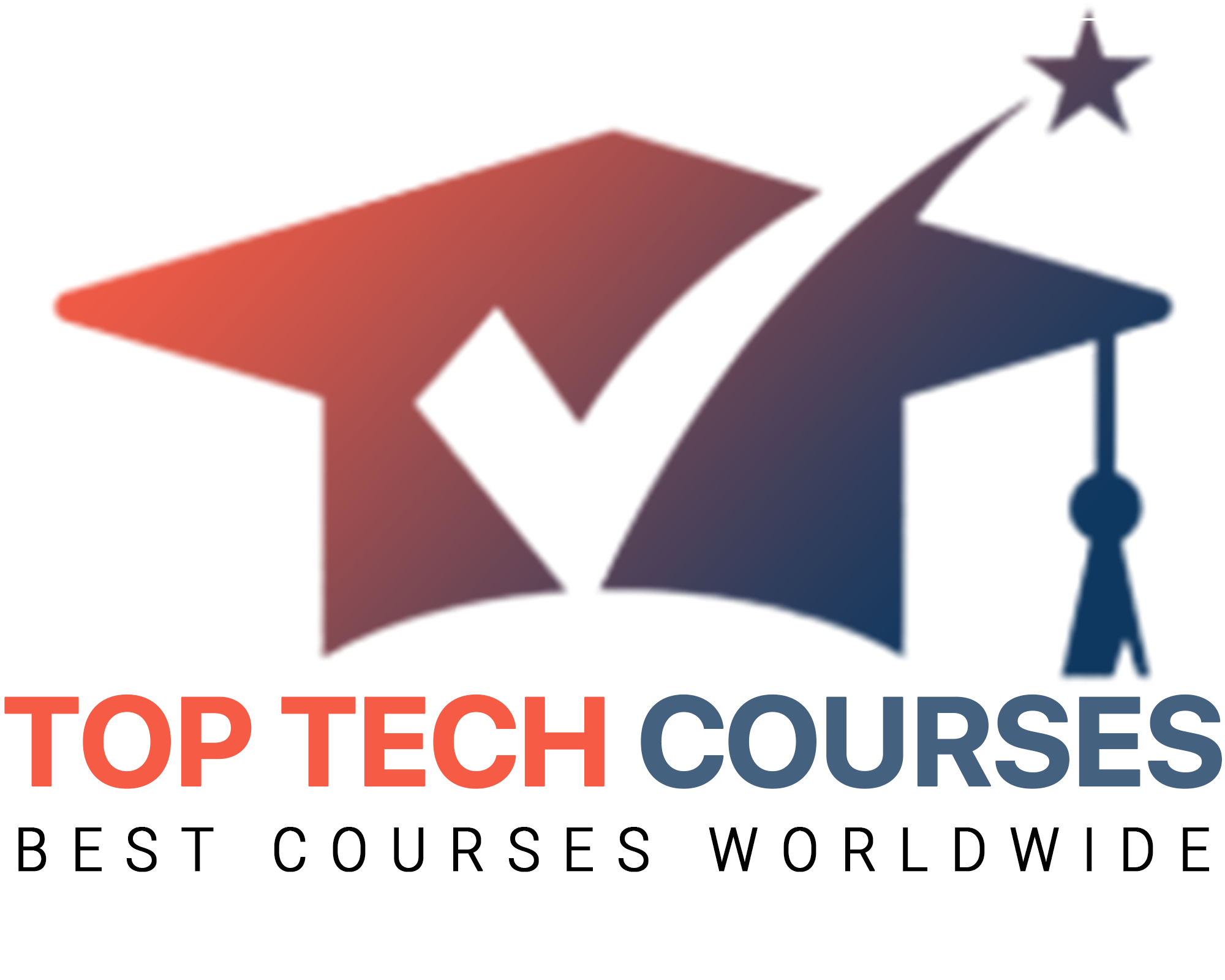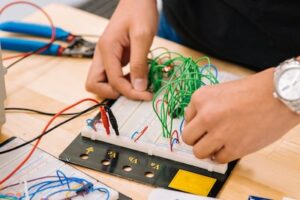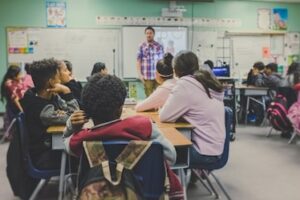
Flexible learning: Break free from traditional education for lifelong growth.
Are you tired of the rigid structure of traditional education? Do you yearn for a more dynamic and personalized approach to learning? Look no further! In this article, we delve into the world of flexible learning, an innovative educational philosophy that breaks free from the shackles of conventionality. Lifelong growth is the name of the game, and we are here to guide you through the uncharted territory of this exciting journey.
Picture a realm where education is not restricted to a specific timeframe or location—a realm where self-discovery and intellectual exploration thrive. Ready to embark on this adventure? Strap in and get ready to challenge everything you thought you knew about how we learn.
Table of Contents
Why traditional education is holding you back
Flexible learning is different from traditional education systems. It provides a dynamic and adaptable approach to acquiring knowledge and skills. With flexible learning, individuals have the freedom to customize their learning experiences to their specific needs. They can explore different subjects and go more in-depth in areas they are interested in.
This approach allows learners to take control of their education by choosing when, where, and how they learn. Flexible learning offers self-paced online courses, blended learning programs, and practical experiences. It empowers individuals to develop at their own pace and aligns with their unique goals and learning style.
By embracing flexible learning, individuals can unlock their full potential and keep growing throughout their lives.
Embracing flexibility: The key to lifelong learning
It goes beyond the traditional notion of education, extending personal growth and professional development beyond the confines of a classroom. According to a study published in Harvard Business Review, individuals who engage in lifelong learning are more likely to adapt to changing environments and face new challenges with confidence. Lifelong learners have the ability to stay relevant in today’s fast-paced world by continuously acquiring new knowledge and skills. They embrace flexibility and are open to exploring new opportunities, making them more adaptable to the ever-evolving demands of the job market.
Whether it’s participating in workshops, attending conferences, or pursuing online courses, lifelong learners possess the mindset and drive to keep expanding their horizons, enabling them to thrive in a rapidly changing world. Embracing a lifelong learning approach opens up a world of possibilities, allowing individuals to unlock their true potential and build a fulfilling and successful life.
Furthermore, lifelong learning also has significant personal benefits. It helps individuals stay intellectually curious, fosters personal growth, and provides a sense of fulfillment. The continuous pursuit of knowledge can enhance self-confidence and self-esteem, empowering individuals to take control of their own personal development. Harvard Business Review highlights that lifelong learning can also positively impact mental well-being by stimulating cognitive function, enhancing memory, and improving overall brain health.
In addition, it fosters a growth mindset, enabling individuals to approach challenges with a positive attitude and embrace lifelong growth. By actively engaging in continued learning, individuals can cultivate their interests, discover new passions, and gain a deeper understanding of the world around them. Whether it’s pursuing a new hobby, learning a new language, or delving into a different field of study, lifelong learning offers endless possibilities for personal enrichment and intellectual satisfaction.
Exploring alternative learning methods for personal growth
Alternative learning methods offer flexible and immersive learning experiences that go beyond traditional classrooms. These methods, such as apprenticeships, internships, online courses, and virtual reality simulations, provide individuals with unconventional ways to acquire knowledge and skills. According to a study in the Harvard Business Review, alternative learning methods enhance critical thinking, problem-solving abilities, and creativity. By embracing these methods and breaking away from rigid structures, individuals can gain practical skills and real-world experience that align directly with their career goals. Alternative methods, including hands-on projects, collaboration with industry professionals, and virtual learning through technology, offer diverse opportunities for personal growth and development.
One advantage of alternative learning methods is the ability to tailor the learning experience to individual needs and interests. Unlike traditional education, which often follows a standardized curriculum, alternative methods allow individuals to focus on specific subjects they are passionate about and customize their learning journey accordingly. Whether someone wants to learn a new language, develop coding skills, or explore entrepreneurship, alternative learning methods provide the flexibility to pursue these interests on one’s own terms. Additionally, these methods prioritize practical application and real-world experiences, allowing learners to gain relevant skills that can be immediately applied in their chosen field.
This dynamic and adaptable approach to learning fosters a sense of ownership and empowerment, encouraging individuals to take control of their education and embark on a lifelong journey of growth and discovery.
The benefits of self-paced and online learning
Self-paced learning offers individuals the opportunity to learn at their own pace and focus on topics that interest them. This creates a personalized learning journey where individuals can explore subjects that pique their curiosity. Online learning platforms make education accessible to anyone with an internet connection, offering a wide range of courses in different fields. Learning online is convenient, allowing individuals to learn from the comfort of their own home and eliminating geographical limitations. It also provides interactive resources like videos, quizzes, and forums to enhance the learning experience. Embracing self-paced learning and online education enables continuous growth and development.
According to Harvard Business Review, studies have shown that online learning is as effective, if not more so, than traditional classroom-based learning. Online learners tend to retain information better and for longer periods of time. The ability to review course material and replay lessons contributes to a deeper understanding of the subject. Online learning also allows for customization, as learners can choose courses and materials that meet their specific needs and interests. The flexibility of online learning is particularly beneficial for individuals with busy schedules, as it enables them to balance learning with work and other responsibilities. Additionally, online learning provides opportunities for interactive discussions and collaborations, fostering a sense of community despite the physical distance. With advancements in technology and the increasing accessibility of online learning platforms, self-paced and online learning are rapidly becoming the preferred methods for lifelong growth and development.
Success stories: How flexible learning transformed lives
Traditional education limitations include a rigid structure, fixed schedules, and limited flexibility. This can prevent students from exploring diverse subjects and delving deeper into their interests. Additionally, traditional education prioritizes memorization and standardized testing instead of developing critical thinking and problem-solving skills. A study highlighted by Harvard Business Review found that conformity is emphasized in traditional education, stifling creativity and hindering innovation. Given these limitations, it is important to explore alternative approaches that cater to individual learning needs and foster lifelong growth.
Many individuals seek more flexible and adaptive learning models due to the limitations of traditional education. Flexibility in education allows students to have control over their learning journey, choosing when, where, and how they acquire knowledge and skills. Self-paced online courses and blended learning programs provide the convenience of learning at one’s own pace, allowing individuals to balance their education with other commitments. Moreover, these alternative approaches often use technology to offer interactive and engaging learning experiences beyond traditional classroom settings. Online education, recognized by top universities and institutions, helps overcome the stigma associated with non-traditional forms of education and supports the notion that flexibility in learning promotes lifelong growth and success.
articly.ai tagvoicedrop.ai tag
TopTechCourses: Empowering Students with In-Demand Tech Skills in Spanish
TopTechCourses, a leading online marketplace for technology and programming courses, offers over 10,000 courses in Spanish. Its goal is to equip students with technical and practical skills in a variety of fields such as web development, data science, artificial intelligence, cybersecurity, and more.
The courses, taught by subject matter experts, cater to different proficiency levels, ensuring that learners of all backgrounds can benefit from the platform. The cherry on top? After completing a training program, each student receives an industry-recognized certificate of completion, validating their newly acquired skills.
TopTechCourses serves as a gateway for students to acquire valuable expertise and propel their careers in the ever-evolving world of technology and programming. It embraces the mantra of flexible learning for lifelong growth, catering to the diverse needs and aspirations of individuals seeking to stay relevant in the fast-paced tech industry.
Frequently Asked Questions
Flexible learning refers to an educational approach that allows individuals to break free from the constraints of traditional education and customize their learning experiences to suit their specific needs, schedules, and goals.
Flexible learning is important because it recognizes that individuals have different learning styles, preferences, and commitments. It allows learners to personalize their education, enabling them to learn at their own pace, focus on their areas of interest, and balance their educational goals with other life commitments.
Flexible learning differs from traditional education in several ways. Traditional education typically follows a rigid curriculum, fixed schedules, and a one-size-fits-all approach. In contrast, flexible learning offers a more personalized and adaptable approach, allowing learners to choose what, when, and how they learn.
The benefits of flexible learning include increased engagement and motivation, enhanced self-directed learning skills, the ability to balance work or family commitments with education, better utilization of technology for learning, and the opportunity to learn from a diverse range of sources and experiences.
Flexible learning can benefit a wide range of individuals, including working professionals looking to upskill or change careers, stay-at-home parents, individuals with disabilities, lifelong learners seeking personal growth, and those who prefer a non-traditional approach to education.
Some examples of flexible learning methods include online courses, distance learning programs, hybrid learning models (combining in-person and online instruction), self-paced learning modules, competency-based education, and microlearning.
To start with flexible learning, you can explore online platforms offering courses in your areas of interest, join virtual learning communities or networks, seek out educational resources tailored to your specific needs, and consider enrolling in flexible degree programs offered by universities and institutions.
Yes, flexible learning is increasingly being recognized and valued by employers. As the demand for lifelong learning grows, employers appreciate individuals who have developed self-directed learning skills, adaptability, and the ability to continually acquire new knowledge and skills. Flexible learning demonstrates a commitment to personal growth and professional development.
No, flexible learning does not necessarily mean learning alone. While it offers the freedom to learn independently, it also provides opportunities for collaboration, networking, and interaction with educators and fellow learners through online platforms, discussion forums, virtual classrooms, and other communication tools.
Yes, traditional educational institutions can incorporate flexible learning practices by offering online courses, designing hybrid learning models, allowing for self-paced learning options, facilitating competency-based education, and providing support services to accommodate learners’ varying needs and preferences.
In Summary
As the world leaps into an era of rapid technological advancement and uncharted global challenges, the concept of learning and education has taken on a dynamic new face. What was once seen as a linear path completed in early adulthood has now expanded into an ever-evolving journey of lifelong growth.
Flexible learning, with its fluidity and adaptability, has become the key to unlocking the boundless potential within each of us.In a society that demands constant innovation and reinvention, the traditional model of education no longer suffices.
We need a paradigm shift, one that embraces the notion of continuous learning throughout our lives. Flexible learning doesn’t confine us to ivory towers, lecture halls, or formal classrooms.
It transcends boundaries, inviting us to learn from a kaleidoscope of experiences, forging connections between different disciplines and cultures.Gone are the days when acquiring knowledge was solely an intellectual pursuit.
Today, flexible learning is intrinsically intertwined with personal and professional growth. It empowers individuals to explore their passions, develop practical skills, and adapt to the ever-changing demands of the modern workforce.
It blurs the lines between formal education, online courses, vocational training, and non-traditional learning opportunities, creating an eclectic tapestry of knowledge acquisition.Yet, in this world of boundless opportunities, the daunting question arises: how do we navigate this vast ocean of information? As the floodgates open, we find ourselves engulfed in a deluge of conflicting opinions, half-truths, and misinformation.
The need for critical thinking and media literacy becomes paramount, allowing us to separate fact from fiction in an era plagued by misinformation.Flexible learning requires a curious mind, one that embraces new ideas and challenges established norms.
It encourages us to abandon the notion of a fixed mindset and embrace the growth mindset, where failure becomes a catalyst for growth and learning. It liberates us from the fear of change, equipping us with the tools to adapt, pivot, and thrive in an ever-transforming world.
In this era of lifelong growth, flexible learning is not just a luxury; it is a necessity. It opens doors to new opportunities, broadens perspectives, and fuels creativity.
As we navigate our way through the chaos and uncertainty of the present, embracing flexible learning allows us to equip ourselves with the resilience and adaptability needed to shape a brighter future.So let us embrace the transformative power of flexible learning, breaking free from the confines of traditional education.
Let us embark on a lifelong journey of intellectual curiosity, personal growth, and professional development. Only then can we truly harness our limitless potential, creating a society that thrives on continuous learning and lifelong growth.








